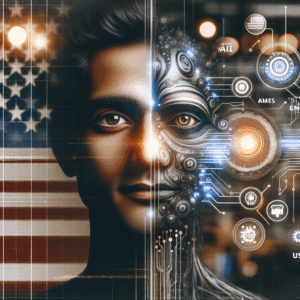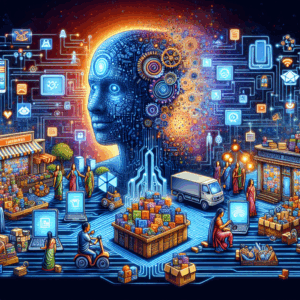
What if tomorrow’s online shopping depended on today’s data deal? Imagine a world where brands don’t just automate emails but empower smart AI agents to negotiate, personalize, and even purchase on your behalf. In this article, we’ll explore how “agentic AI” is redefining brand automation and what that means for businesses and consumers alike.
Meet Priya, a Chennai-based e-commerce seller. Last week, her AI-powered dashboard sent her a notification: ‘Your virtual sales agent has successfully renegotiated shipping contracts, lowering average delivery costs by 15%.’ Priya was amazed—not just at the savings, but at the way the system autonomously analyzed market trends, evaluated offers, and sealed the deal without human intervention.
What’s Happening?
The rise of “agentic AI” marks a new chapter in automation. Unlike classic bots or simple workflow tools, agentic AI refers to intelligent agents capable of autonomous decision-making. These tools can interact, negotiate, and execute tasks across web platforms and apps, drawing on vast data sources to adapt their strategies in real time. From price comparison engines to autonomous customer service, agentic AI is evolving rapidly—powered by breakthroughs in natural language understanding, real-time analytics, and machine learning.
Why It Matters
- For brands: Agentic AI means smarter workflow optimization, automatic adaptation to market demands, and reduced overhead. Brands can scale operations without adding headcount.
- For consumers: Shopping could get more personalized and efficient, with virtual agents hunting for the best deals or customizing offers based on your preferences.
- Privacy and control: This technology also raises questions about data sharing, security, and how much autonomy brands and users should delegate to intelligent systems.
- Competitive advantage: Early adopters could gain significant edge—think dynamic pricing, improved delivery, or even AI-driven negotiations with other brands and suppliers.
What’s Next?
Major tech companies and policy makers are closely following these developments. Expect new product launches showcasing agentic AI features in marketing, logistics, and e-commerce. Upcoming digital policy discussions may address ethical use, data privacy, and consumer rights. Watch out for stakeholder announcements and regulatory updates that could shape implementation across industries.
Conclusion
Agentic AI is poised to become the next frontier in brand automation. By blending autonomy with intelligence, it promises both opportunities and challenges. As the technology matures, its impact will touch everything from shopping experiences to business strategies. How do you feel about this shift? Drop a comment!







